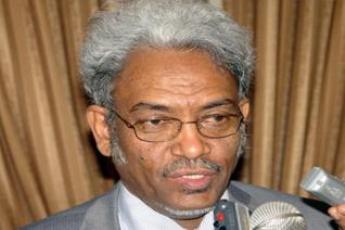Sudan’s parties clash in public over Darfur
August 10, 2011 (KHARTOUM) – Officials from Sudan’s ruling National Congress Party (NCP) and its breakaway Popular Congress Party (PCP) have once again escalated their war of words in the public arena.

In a symposium held in Khartoum on Wednesday, NCP’s senior official Amin Hassan Omer and the PCP’s leading member Mohamed Al-Amin Khalifah exchanged verbal blows after the former cited information indicating a relationship between the PCP and the Darfur rebel group Justice and Equality Movement (JEM).
Al-Khalifa retorted to the accusation made by Omer, saying his party has chosen another path to change the regime other than the path of armed struggle chosen by JEM.
Omer, who was the leader of the government’s negotiating delegation to peace talks with Darfur rebel groups in the Qatari capital of Doha, which culminated last month with the signing of a peace deal with one rebel faction in an attempt to end the long-running conflict in the western region, said that the deal had ended Darfur problem.
“Darfur has now become an issue for the political arena,” he said, adding that the Darfur stakeholders’ conference, whose outcome served as the foundation of the peace deal, had addressed Darfur people’s demands in compensation and power-sharing.
The Doha Peace Agreement was rejected by JEM and the talks were boycotted by the Sudan Liberation Movement’s faction of Abdul Wahid Nur, two major rebel groups.
Darfur conflict erupted in 2003 after ethnic rebels took up arms against the government, accusing it of neglecting the region. Khartoum mobilized its allied militias in the region and launched an abusive counterinsurgency campaign, leading to the death of 300,000 people and displacement of 2.7 million, according to UN figures.
(ST)
